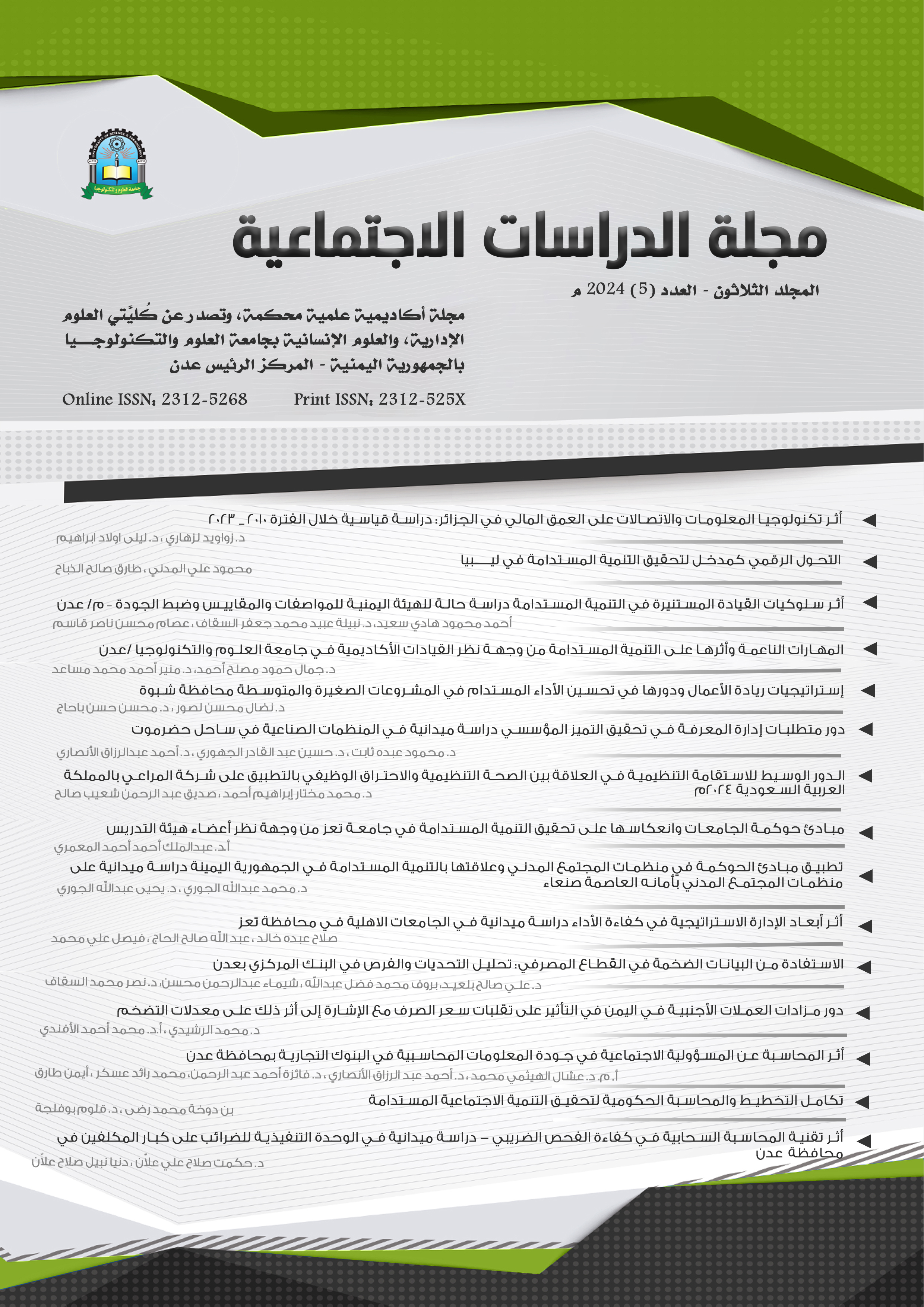The impact of Enlightened Leadership behaviors in Sustainable development A case study of the Yemeni Organization for Standardization, Metrology and Quality Control - M/Aden
##plugins.themes.bootstrap3.article.main##
Abstract
This study aimed to explore the impact of enlightened leadership behaviors, in its various dimensions (role model, developer, servant, changer, visionary, connector), on sustainable development, through a case study of the Yemeni Authority for Standards and Quality Control in Aden Governorate. The research population consisted of all the employees of the authority, totalling (40) employees, where (40) questionnaires were distributed, and (31) valid responses were retrieved. The study employed a descriptive-analytical approach and used the SPSS statistical package to test the research hypotheses. The results revealed a high availability of enlightened leadership behaviors as well as sustainable development factors. Additionally, the study demonstrated a significant positive impact of the six dimensions of enlightened leadership behaviors on sustainable development, with a very strong positive correlation. The study provided several recommendations, the most important of which was the need to invest in enlightened leadership behaviors to align with the goals of sustainable development, and to encourage the authority to focus on visionary and connector behaviors to enhance performance efficiency and clarify future vision.
##plugins.themes.bootstrap3.article.details##
Enlightened leadership behaviors - sustainable development- Yemeni Organization for Standardization, Metrology and Quality Control - M/Aden., Enlightened leadership behaviors, sustainable development, Yemeni Organization for Standardization, Metrology and Quality Control, M/Aden

This work is licensed under a Creative Commons Attribution 4.0 International License.
JSS publishes Open Access articles under the Creative Commons Attribution (CC BY) license. If author(s) submit their article for consideration by JSS, they agree to have the CC BY license applied to their work, which means that it may be reused in any form provided that the author (s) and the journal are properly cited. Under this license, author(s) also preserve the right of reusing the content of their article provided that they cite the JSS.








